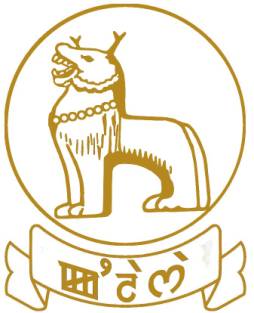 Discover Manipur - Culture, Food, Attractions and Key Facts
Discover Manipur - Culture, Food, Attractions and Key FactsCapital - Imphal
No. of Districts - 16
Population - 2,570,390
Area - 22,327 sqkm
Pop. Density - 122/km2 (320/sq mi)
GDP - 0.231 lakh crore (US$3.2 billion)
Literacy Rate - 79.2%
Gender Ratio - 992
Official Website - https://manipur.gov.in/
Manipur, a state located in northeastern India, is known for its rich cultural heritage, natural beauty, and historical significance. Here are some key facts about Manipur:
Location: Manipur is situated in the northeastern part of India, bordered by the Indian states of Nagaland to the north, Mizoram to the south, Assam to the west, and the country of Myanmar (Burma) to the east.
Capital: The capital of Manipur is Imphal, which is also the largest city in the state.
Geography: Manipur is characterized by its picturesque landscapes, with hills, valleys, rivers, and lakes. The Loktak Lake, the largest freshwater lake in northeastern India, is located in Manipur. The state is also known for its dense forests and diverse wildlife.
Culture: Manipur is renowned for its rich cultural heritage, particularly in the fields of dance, music, and martial arts. Manipuri dance forms such as Ras Leela and Manipuri Classical Dance are highly revered. The state celebrates various festivals, with the Manipuri New Year (Cheiraoba), Yaoshang (Holi), and Kut being among the most prominent.
Language: Meiteilon (also known as Manipuri) is the official language of Manipur. However, other languages such as English, Hindi, and various indigenous tribal languages are also spoken.
Economy: Agriculture is the primary occupation in Manipur, with the majority of the population engaged in farming. The state's economy also relies on handloom and handicraft industries, tourism, and small-scale industries.
History: Manipur has a rich historical background, with evidence of human habitation dating back thousands of years. It has been ruled by various kingdoms and empires throughout its history. The state played a significant role during the British colonial period and was the site of several battles during World War II.
Politics: Manipur is governed by a parliamentary system of representative democracy, similar to the rest of India. The state has its own elected legislative assembly and chief minister.
Ethnic Diversity: Manipur is home to various ethnic groups, including the Meitei, Naga, Kuki, and Pangal (Manipuri Muslims). Each group has its own distinct cultural traditions and practices.
Conflict: Manipur has experienced ethnic and political tensions, including insurgencies and conflicts over issues such as autonomy, identity, and resource distribution. The state has seen periods of unrest, though efforts for peace and reconciliation continue.
These facts provide a glimpse into the diverse and vibrant state of Manipur, which holds significant cultural, historical, and geographical importance in India's northeastern region.